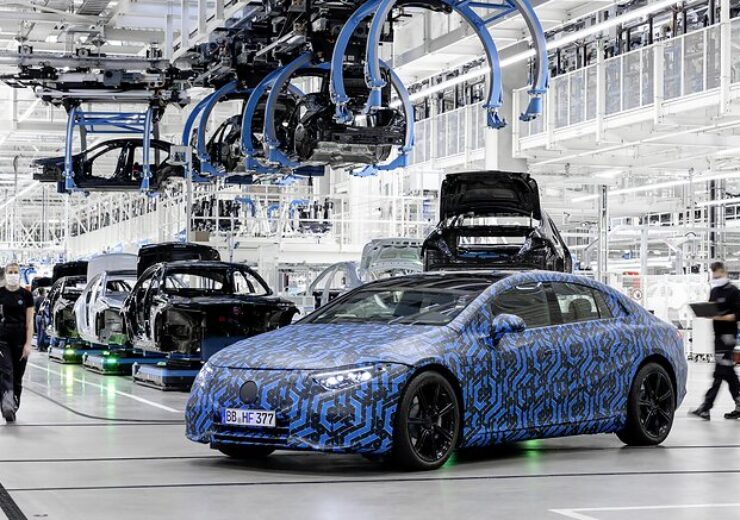The focus of the Mercedes-Benz brand will be on electrification, digitalisation, and automated driving

Mercedes-Benz is planned to go fully-electric by 2030. (Credit: Daimler AG)
Daimler said that its supervisory board has sanctioned the Mercedes-Benz business plan for 2022 to 2026, which involves an investment of more than €60bn towards transforming the luxury car brand into a software-driven and emissions-free future.
The approval comes after an announcement made in July 2021 by Daimler that Mercedes-Benz vehicles will be fully electrified by the end of this decade in countries where market conditions allow.
Daimler said that after the previously announced spin-off of Daimler Truck is wrapped up, Mercedes-Benz will focus consistently on profit and opportunities for growth in the businesses of passenger cars and vans.
The German automotive manufacturer revealed that although it intends to cut down capital expenditure (capex), the amount spent towards research and development (R&D) for the electrification of the products and digitalisation measures, including those towards automated driving will continue to be at a high level.
Daimler had previously announced an investment of €40bn for the full electrification of Mercedes-Benz’ portfolio.
Daimler and Mercedes-Benz CEO Ola Källenius said: “Our goal is technological leadership in the automotive luxury segment and in the area of premium vans while remaining committed to our ambitious margin targets.
“Mercedes-Benz has what it takes: a clear strategy, a highly qualified and motivated team, as well as strong support from the entire supervisory board. With the most desirable cars we want to grow profitably and create sustainable value for our customers, employees, shareholders and partners.”
According to Daimler, the 2022-2026 investment plan continues to be aligned with its objective of slashing capex and spending on R&D by over 20% between 2019 and 2025 and to further bring it down beyond the date.
The German firm said that to achieve the capex reduction, the main thing is strict prioritisation of future investments, primarily in electric mobility.
Daimler expects to see a decrease in the variable costs of vehicles by leveraging standardised battery platforms, scalable vehicle architectures and advances in battery technology.


